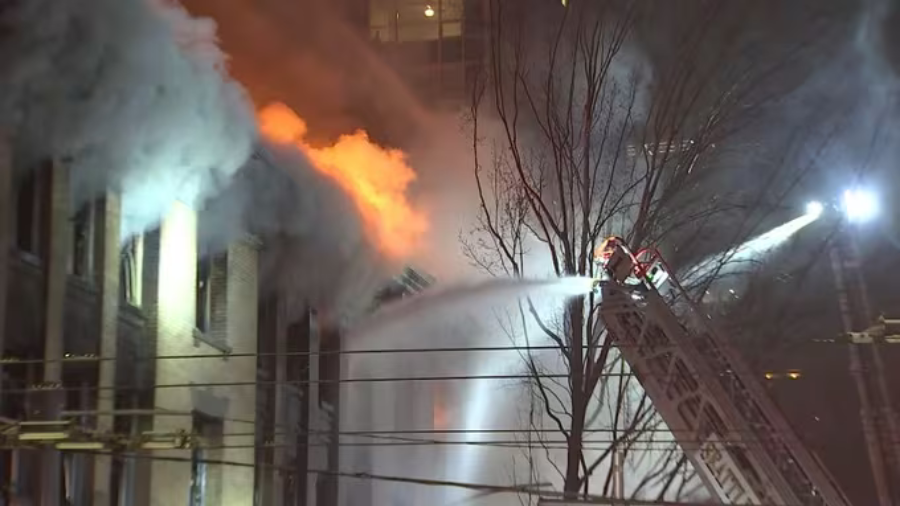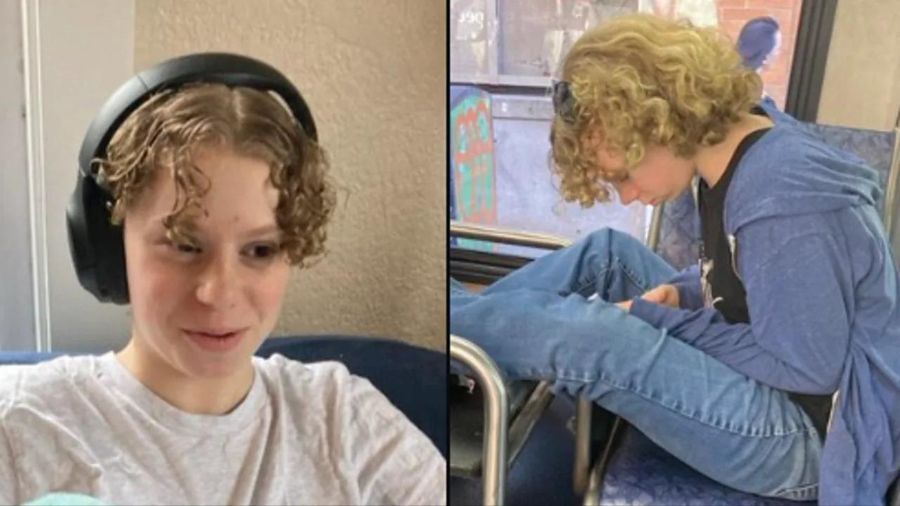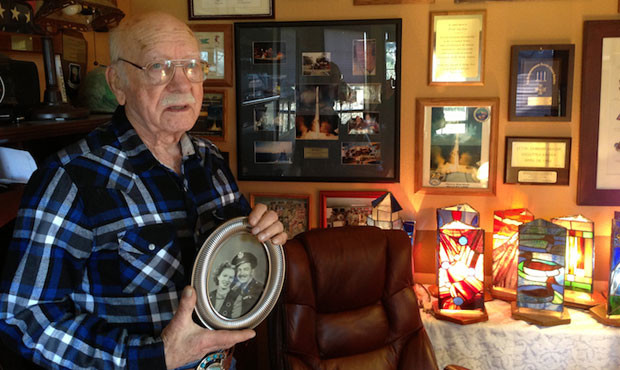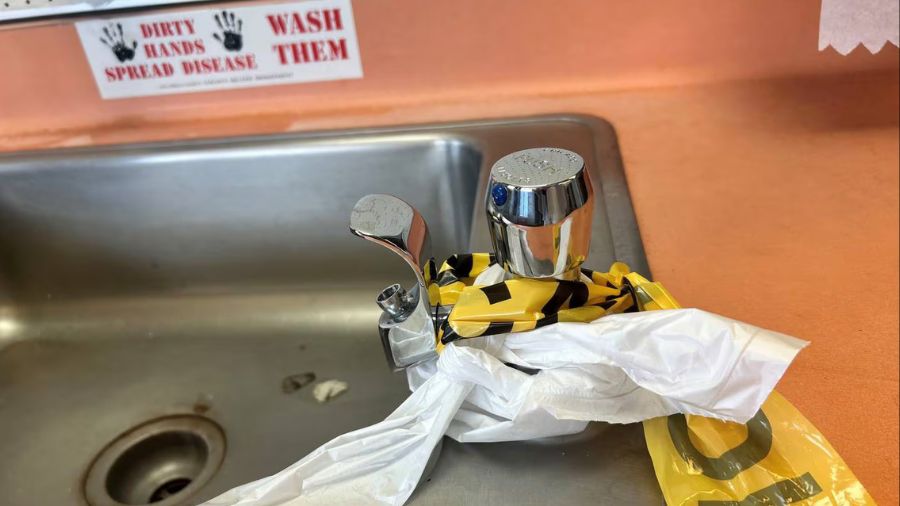To stay indoors or not? Advice for wildfire smoke and COVID-19 safety
Sep 10, 2020, 3:37 PM

Smoke from a fire in the Sumner/Bonney Lake area. (Hanna Scott, KIRO Radio)
(Hanna Scott, KIRO Radio)
Washingtonians are facing two disasters that are dangerous for their lungs: the COVID-19 pandemic and wildfire smoke. And both can work in tandem with each other.
Lacy Fehrenbach, assistant secretary of Prevention and Community Health at the Washington State Department of Health, noted that breathing in wildfire smoke can make coronavirus symptoms worse. Even in a person who does not have the virus, it can weaken the lungs, making a person more susceptible to COVID-19 and other respiratory diseases.
Unfortunately, it can be difficult to know how to stay safe because following the advice for both COVID-19 and wildfire smoke can be a bit contradictory.
“A lot of the measures that we recommend to reduce exposure to wildfire smoke are kind of the opposite of what we recommend to reduce COVID exposures,” State Health Officer Dr. Kathy Lofy said during the Department of Health’s weekly briefing Wednesday.
To protect yourself from COVID-19 when meeting with friends, family, or anyone outside of your household, it is best to go outdoors if possible, or, if indoors, to open windows and keep air circulating.
Air quality warning extended to Monday
However, when wildfire smoke is filling the air outside, the recommendation is to stay inside and close all windows and doors.
Does that mean a person has to choose between exposing their lungs to coronavirus or smoke?
Not at all, Lofy said. There is one common piece of advice for both disasters: Wear a mask.
That means stay inside and close windows whenever possible as long as the smoke persists, but make sure masks are kept on around people who are not part of the household. Setting air conditioners to re-circulation mode when indoors is also a good idea.
“To protect from wildfire smoke, it’s really important that they wear their face coverings indoors if they may be around other people, and to continue to socially distance as best they can in that indoor environment,” Lofy said.
Cloth masks are not going to do a whole lot against wildfire smoke, but people are still asked to save N95 respirators for health care workers.
“We are trying to reserve some of our N95 masks for our health care providers, and are really hoping that people can take other measures to try to avoid needing an N95 mask,” Lofy said.
She noted that if you really are in dire need, you can contact your local emergency management center to see if there are any extras.
KN95 masks are another option. Reed Schuler, a senior policy advisor to Governor Inslee, noted that these respirators don’t meet all of the health standards of N95s, but they are still more effective than cloth masks.
“They’re likely to be at greater commercial availability, and also provide similar levels of protection to folks whose business requires them to work outside in hazardous air conditions,” Schuler said.
Reducing trips out and about can also reduce exposure to both smoke and germs. It is also recommended to limit outdoor sports or physically exerting activities.
If you do need to go out, Lofy recommends checking air quality reports often and picking a time when it is better. To see the latest report of air quality near you, visit the Washington Smoke Blog.













